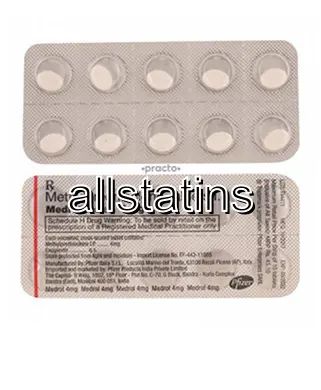| Package | Dosage | Price | Price per Dose | |
|---|---|---|---|---|
| Dosage: 4mg | ||||
| 360 pill | 4mg | $358.78 | $1.00 | |
| 270 pill | 4mg | $310.34 | $1.15 | |
| 180 pill | 4mg | $238.58 | $1.33 | |
| 120 pill | 4mg | $179.38 | $1.49 | |
| 90 pill | 4mg | $152.47 | $1.69 | |
| 60 pill | 4mg | $114.80 | $1.92 | |
| 30 pill | 4mg | $66.36 | $2.21 | |
| Dosage: 8mg | ||||
| 360 pill | 8mg | $538.18 | $1.49 | |
| 270 pill | 8mg | $455.66 | $1.69 | |
| 180 pill | 8mg | $349.81 | $1.94 | |
| 120 pill | 8mg | $267.29 | $2.22 | |
| 90 pill | 8mg | $220.66 | $2.46 | |
| 60 pill | 8mg | $165.03 | $2.74 | |
| 30 pill | 8mg | $93.27 | $3.10 | |
| Dosage: 16mg | ||||
| 270 pill | 16mg | $538.18 | $1.99 | |
| 180 pill | 16mg | $412.60 | $2.30 | |
| 120 pill | 16mg | $308.55 | $2.57 | |
| 90 pill | 16mg | $261.91 | $2.91 | |
| 60 pill | 16mg | $193.73 | $3.23 | |
| 30 pill | 16mg | $109.42 | $3.64 | |

Methylprednisolone Description
Overview of Methylprednisolone
Methylprednisolone is a synthetic corticosteroid widely used to reduce inflammation and suppress the immune system. It belongs to a class of drugs that mimic the effects of natural hormones produced by the adrenal glands. This medication is often prescribed for a variety of conditions, including allergic reactions, autoimmune disorders, and inflammatory diseases. It is available in different forms, such as tablets, injectable solutions, and topical preparations, providing flexibility for various treatment needs.
Mechanism of Action
As a corticosteroid, methylprednisolone works by decreasing the production of chemicals that trigger inflammation and immune responses. It influences gene expression within cells, leading to the suppression of immune activity and moderation of inflammatory processes. This action helps to alleviate symptoms like swelling, redness, pain, and tissue damage caused by excessive immune activity. The drug's potency allows it to provide rapid relief in many acute conditions, making it an essential medication in managing severe inflammatory states.
Uses and Indications
Methylprednisolone is prescribed for a broad spectrum of conditions. It is often used to treat severe allergic reactions, such as asthma exacerbations or allergic dermatitis. The medication is also effective in managing autoimmune diseases like rheumatoid arthritis, lupus, and multiple sclerosis by controlling immune system overactivity. Additionally, it plays a crucial role in reducing inflammation in conditions such as spinal cord injuries, certain skin diseases, and some types of cancerous inflammation. Its versatility makes it a valuable option in both outpatient and hospital settings.
Benefits of Methylprednisolone
Patients generally experience quick relief from symptoms associated with inflammation and immune overactivity when using methylprednisolone. Its effectiveness in controlling acute episodes can prevent complications and reduce the need for more invasive treatments. In chronic conditions, it helps maintain quality of life by managing persistent symptoms. Furthermore, the availability of different formulations allows healthcare providers to tailor therapy according to the severity and location of the disease, enhancing overall treatment outcomes.
Possible Side Effects
Despite its benefits, methylprednisolone can cause several side effects. Commonly reported issues include increased appetite, weight gain, sleep disturbances, and mood swings. Long-term use may lead to more serious problems such as osteoporosis, high blood pressure, eye problems like glaucoma, and suppression of natural hormone production. Some patients may experience gastrointestinal discomfort, skin thinning, or increased susceptibility to infections. It is essential to follow healthcare provider instructions carefully to minimize these risks and monitor for adverse effects during treatment.
Precautions and Considerations
Before starting methylprednisolone, patients should disclose their full medical history, especially if they have infections, diabetes, or osteoporosis. Due to its immune-suppressing effects, caution is necessary in patients with current infections. Regular monitoring during therapy includes checking blood pressure, blood sugar, and bone density, particularly for long-term use. During pregnancy and breastfeeding, the medication should be used only if the potential benefits outweigh the risks. Also, abrupt discontinuation after prolonged use should be avoided; healthcare providers usually recommend gradually tapering the dose to prevent adrenal insufficiency.
Conclusion
Methylprednisolone remains a potent and versatile corticosteroid medication. Its ability to rapidly control inflammation and immune responses makes it a valuable tool in managing a wide range of medical conditions. However, careful consideration of potential side effects and proper medical supervision are crucial for safe and effective use. Patients should adhere closely to prescribed dosages and report any adverse reactions promptly to their healthcare provider. With responsible use, methylprednisolone can significantly improve health outcomes for those with inflammatory and autoimmune diseases.
See Also

